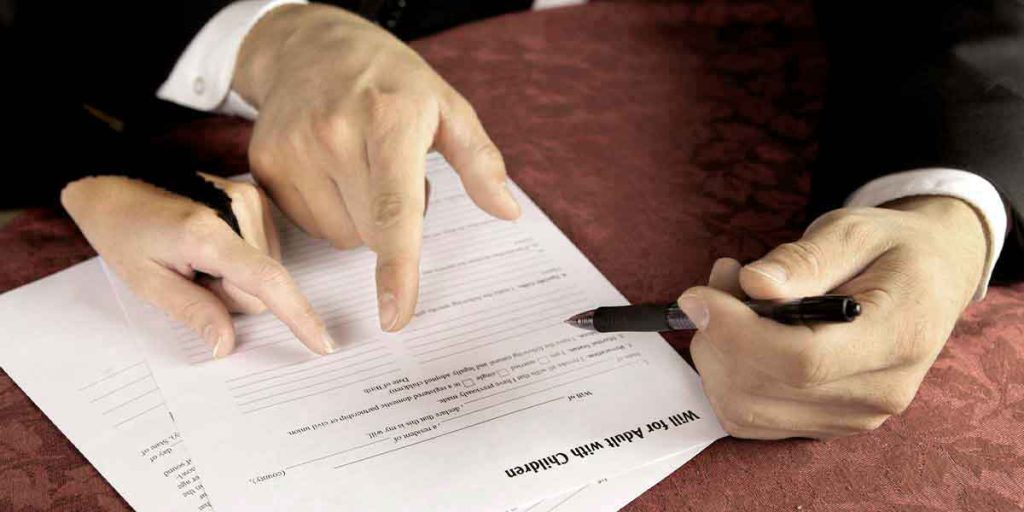When a person dies leaving property behind in Paramus, New Jersey, a legal procedure may be required to take place in court to decide what happens to the property. Whether the person leaves a will behind or not, this process may still take place, provided properties left by the deceased are in the person’s name only, and not owned jointly. This legal process which takes place in court after a person dies is what is known as probate.
Probate Paramus, NJ
The Probate process is Paramus takes place in a probate court in the same county in which the deceased (or decedent) domiciled and owned property. Probate is the court process that is used to regulate the dispersal of assets left by a deceased, and such assets must be held in the name of the decedent only. If the person wrote a will before dying, then it must first be validated in court. This is known as probating the will. If the will is seen to comply with all the requirements and New Jersey laws, then the instructions contained in the will would be carried out just as they are written, and assets distributed to heirs.
What about assets that are not written in a will?
Assets not written in the will but bears the name of the deceased will still be probated. Assets that must go through probate are known as probate assets. On the other hand, assets which do not go through probate are known as nonprobate assets.
What are nonprobate assets?
Nonprobate assets include:
- Assets held in a trust
- Assets jointly owned by joint tenancy or tenancy by entirety
- Assets having beneficiary designations such as Life Insurance proceeds, retirement accounts, accounts with POD (payable on death) clause.
Do the beneficiaries receive what they are entitled to immediately after the will is probated?
Probate in Paramus, New Jersey is a lengthy and complex process. Sometimes it takes up to a year or more before beneficiaries receive what they are entitled to, and this is because there are so many activities which must be done during probate. The executor in the will is responsible for carrying out those activities.
The activities carried out by the executor during probate
- The executor named in the will commences probate by filing a petition to the probate court along with the will.
- When the will is accepted as valid, the executor proceeds to inform the family, beneficiaries, and creditors of the decedent.
- Then he appraises the estate left by the decedent; that is, collecting all the assets and estimating the total value.
- From liquid funds in the estate, the executor has to pay probate court charges, attorney fees, estate taxes, funeral expenses and any other bills on behalf of the decedent.
- Only after paying all these can he then disburse whatever is left to the beneficiaries. In some cases of very large estates, estate funds may be frozen for some time.
When should the executor commence probate?
The executor can go to the probate court at least 10 days after the death of the testator. He must go along with the death certificate and Last Will of the deceased.
What happens when there is no will?
Probate will proceed whether there is a valid will in place or not. In the absence of a will, the court appoints an estate administrator who has the same responsibilities as the executor. He carries out the functions of the executor. In this case, assets will be distributed to “heirs” according to New Jersey succession laws.
Does the executor or estate administrator have to work alone?
Probate is a legal process which requires professionalism. The executor named in the will may not be well enlightened in probate laws of New Jersey or carrying out his functions, and so is advised to hire a probate lawyer from a probate law firm Paramus NJ.
Consult a Probate law firm Paramus, NJ
As an executor or estate administrator, you’ll be faced with the challenge of facing the court, the loved ones and beneficiaries, creditors, and also managing estate funds. In some cases, there may be insufficient funds such that you don’t know what to attend to. But worry not, our probate law firm Paramus, NJ is loaded will probate lawyers highly skilled in New Jersey probate, and will guide you on what to do and how to do it. Your probate lawyer will not just advise, but will assist in carrying out your estate administration duties. When you hire a probate lawyer from our law firm, rest assured that the probate process will be less complex, less difficult, and much shorter and smoother than normally expected. Make a consultation at our probate law firm Paramus today.









